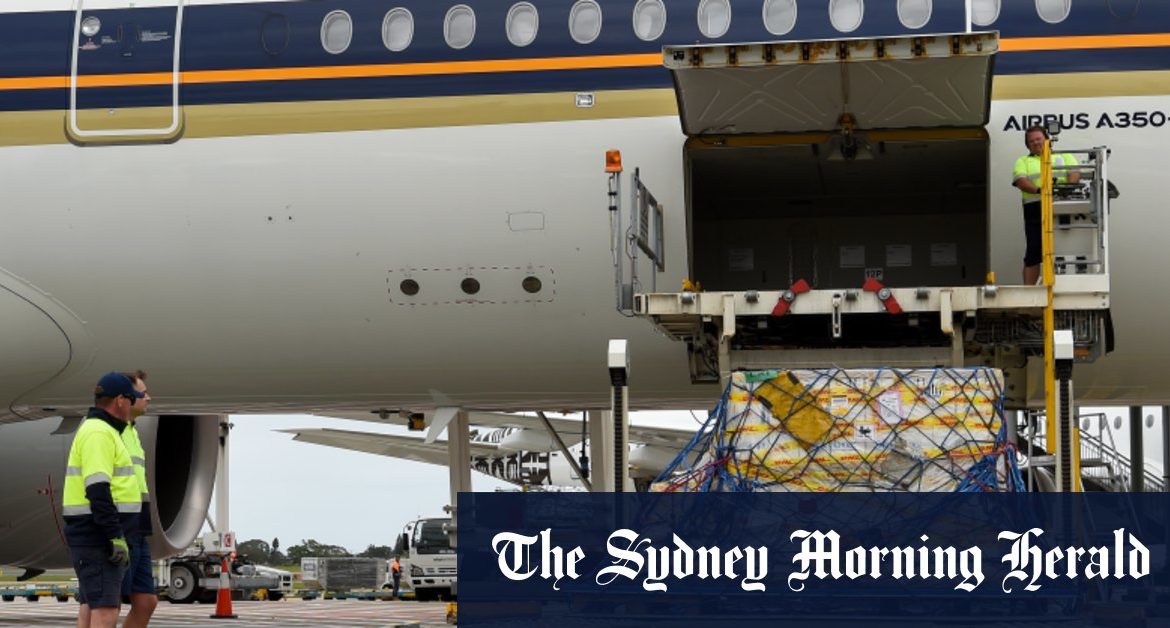Premier Gladys Berejiklian on Monday said she had the green light to administer the first doses to quarantine workers who are most likely to come into contact with the virus – ahead of frontline healthcare workers in hospitals.
“I argued the case that the first batch should at least go to our workers and the federal government agreed to that,” Ms Berejiklian said.
“I’ve asked to make sure it’s a cross-section of health workers and also police, baggage handlers and a whole range of people who are directly exposed.”
Once quarantine workers have been vaccinated the next doses are expected to be administered to health workers at RPA, Westmead and Liverpool Hospitals.
States will receive 50,000 doses of the initial vaccine shipment and the federal government will distribute a further 30,000 for aged care staff and residents, while setting aside 62,000 doses for second vaccinations as phase 1a of the vaccination program begins.
On Tuesday, consent forms will be distributed to aged care facilities and those residents and aged care workers included in the first week of the rollout are being contacted so they can also prepare for their vaccination.
The aged care doses will cover more than 250 facilities across the country, including regional and metropolitan homes.
As well as aged care residents and workers, phase 1a includes hotel quarantine workers, border staff and essential health care workers.
Mr Hunt said it was up to states to decide which groups from that phase would take priority.
“They have indicated – and we generally support it – that the greatest immediate risk is the border quarantine process,” he said.
President of the Australian Medical Association NSW Dr Danielle McMullen said doctors were supportive of NSW Health’s management of the quarantine system and backed Ms Berejiklian’s decision to target quarantine workers with the first round of vaccines.
“Obviously if we see a big explosion of cases in the community we may change our advice, but the rates are so low in the community that our baseline risk of catching COVID is low so we have a bit of time to prioritise quarantine workers,” Dr McMullen said.
University of Sydney public health expert Professor Robert Booy said it made sense to focus on hotel quarantine workers first.
“Quite honestly it’s practical and sensible, they’re the ones who are most exposed in Australia to COVID,” he said.
Mr Hunt expects the first phase of the rollout to take six weeks. Professor Booy said essential healthcare workers would not miss out by more than a week or so.
“Now that we’ve got enough for 10 million people we can cover all of those risk groups very well,” he said.
Dr McMullen expected doctors and nurses at RPA and Westmead hospital would be the first healthcare workers in the community to get the vaccine once quarantine personnel were covered, as they are likely to come into contact with cases that cannot be cared for in hotel quarantine.
Frontline healthcare workers outside the quarantine system would receive either the Pfizer or AstraZeneca vaccine, she said, which is expected to be approved by the Therapeutic Goods Administration within days.
Loading
NSW on Monday recorded another day of zero community transmission and zero cases in hotel quarantine. More than 15,690 tests were recorded in the latest reporting period.
Ms Berejiklian on Monday said NSW had returned to accepting up to 3000 returning travellers every week, a level with which the quarantine system could cope.
“We’ll just have to make sure that we don’t fall behind the rest of the world when it comes to opening up our borders and leading as close to a normal life as possible,” she said.
“We avoid a lockdown at all costs, we avoid closing our borders, we allow our citizens as much freedom as we can.”
Start your day informed
Our Morning Edition newsletter is a curated guide to the most important and interesting stories, analysis and insights. Sign up here.
Rachel Clun is a federal political reporter at The Sydney Morning Herald and The Age, covering health.
Lucy Cormack is a state political reporter with The
Sydney Morning Herald.
Kate Aubusson is Health Editor of The Sydney Morning Herald.
Most Viewed in Politics
Loading







